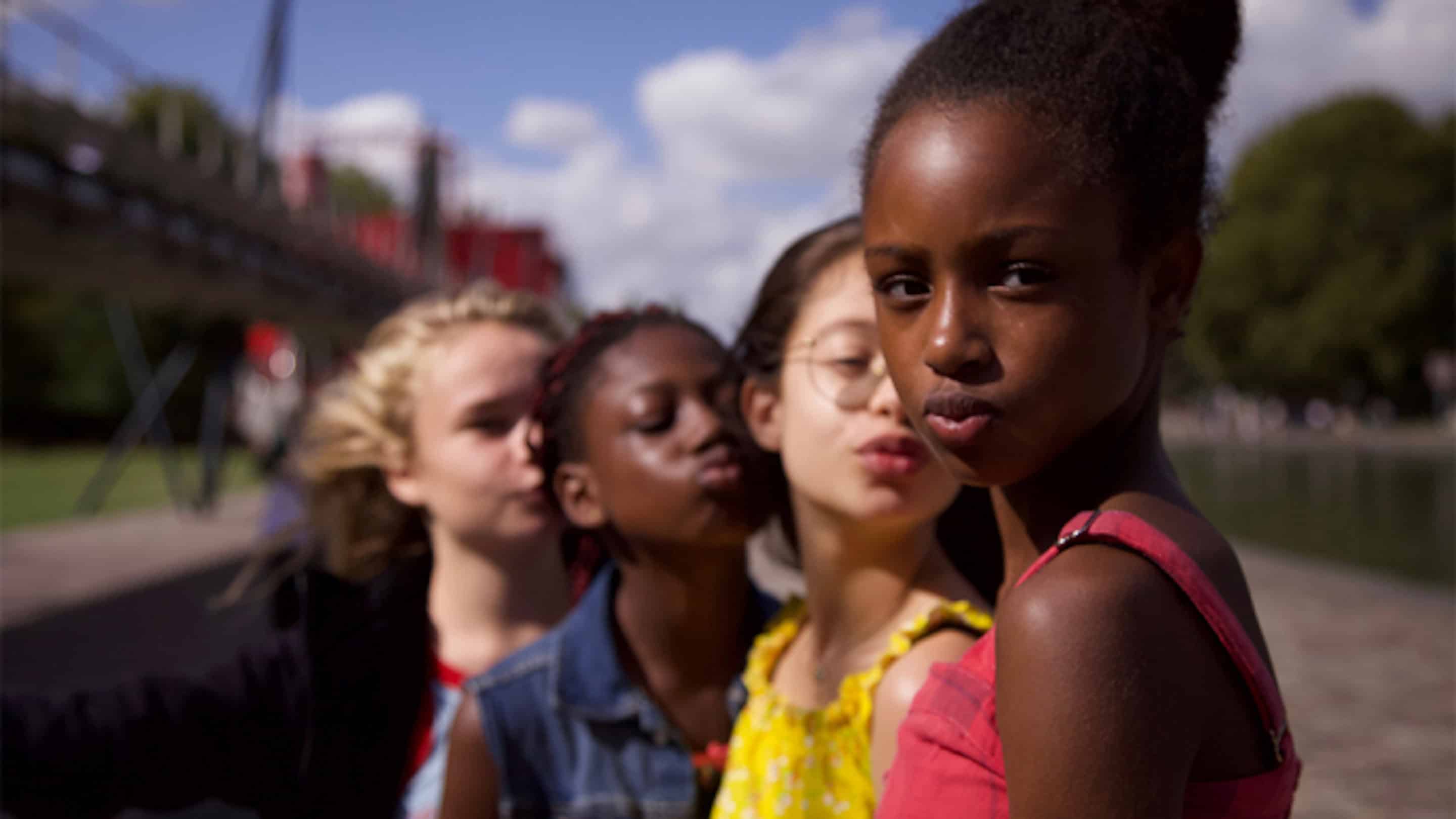//Photo from Netflix
In one scene early into the French film Cuties, a group of women are participating in a Quran study and prayer circle. In this setting, the women, who span across all age groups, discuss the role of women in the context of Islam. They talk about the obvious topics: Purity, virginity and piety are some of the only illustrations of Muslim women in Western media, after all. Yet the scene ends with a woman singing the Surah—a passage from the Quran—a role usually reserved for men. However, when there are no men, someone must sing the Surah, a scene that demonstrates that while women have their own roles to fit into, they are also expected to take on additional work, even when that work is seen as “men’s work.”
Despite both Senegalese and French culture possessing unique characteristics that differentiate them from one another, the scene makes one important point clear: they still place expectations and dictate roles for the women that occupy either society.
Taking place in present-day France, the film follows tween protagonist Amy as she comes of age between the two cultures of the traditional Islamic background of her family and that of secular France. This is a tumultuous time for any pre-teen girl. As puberty comes knocking, we are discovering our bodies and sexual thoughts are just around the corner. This all becomes monumentally more complicated when facing these things as a third culture kid in a world dominated by social media.
Amy feels torn between expectations of women within the two cultures of the Muslim Senegalese diaspora and the sexually alluring French that define her world.
She gets bullied by her classmates for seemingly dressing like a kid and not an adult. These girls are already keenly aware of the pressures to dress provocatively, knowing how much more attention they receive for doing so. Amy balances the same dichotomy—the madonna/whore complex—in her family and religious life as well. When she gets her period, her grandma tells her, “I was engaged when I got my first period,” highlighting the fact that for so much of human history, and still today in so much of the world, girls do not get to be girls for very long.
With conservative Islam as the backdrop, this film explores the bittersweet irony of sexualizing young girls under the guise of “modesty.” The fixation on little girls covering themselves up as to not excite adult men is the same side of the coin as calling 11-year-olds who like to dance “sluts.” Both demonize or aim to obfuscate any visible sign of femininity.
Dance is an important aspect of that journey for Amy. Not only is it an escape from society’s expectations, but it also helps her make choices regarding the synthesis of her identity.
In the film, Amy befriends a classmate and neighbor named Angelica after sneaking glances of her dancing. For Angelica, dancing is her whole world, her sense of self. Dancing is viewed in many cultures as sensual and corporeal, vulnerable yet mesmerizing. So it’s no surprise when dancing is conflated with femininity. Therefore, of course, it is women who are vilified for dancing in public, dancing in the wrong attire, dancing while unmarried—because nothing is more insulting to toxic masculinity than the reminder of femininity.
There are certainly a lot of moments where the camera’s eye lingers on the girls’ butts or focuses on their hips (or rather lack thereof) that, especially to an American audience, can be a little uncomfortable. But that’s the point. The lack of hips is a focus point because these are little girls playing dress-up. The drawn-out shots of the girls dancing are meant to make the audience squirm because it confronts them with their predilection for sexualizing the feminine.
There is a clear message in Doucouré’s film, that the onus to not sexualize these young girls is on the viewer. Not on anything the girls may do. The film shows scene after scene of the girls attempting to be flirty or be seen as sexual by older boys and men. They are shot down every time and told they are children.
The girlishness of the main characters is emphasized to a degree of redundancy, but clearly, this point still went over the heads of many. In one scene, Angelica tends to a welt on Amy’s head by using her own spit to “sanitize” the wound in a moment of endearing naïveté.
On either end of the spectrum, there are endless expectations for how women are supposed to behave, how they’re meant to act, how they’re meant to gain respect from those around them. But, if a young woman suddenly decides to take her body and sexuality into her own hands, it’s suddenly an issue. Women are supposed to listen to what society tells them to do, and not try and be heard. I can’t help but think that the real issue people are having with Cuties is that it is unapologetic in forcing the viewer to examine this.
Last year’s film, Good Boys, too, was a pre-pubescent coming-of-age story. The pre-pubescent boys talk about sex and at one point even practice kissing with a blow-up-doll on a bed. Why is that acceptable, but a film influenced heavily by the director’s own experience is not? It’s because it’s uncomfortable to sit in front of a screen for 96 minutes and be confronted with the fact that this is what 11-year-old girls experience, and that it’s okay for them to discover themselves and own their bodies.
The Parents Television Council, a conservative-leaning watchdog group, had requested that Netflix not release Cuties and that they remove “other content that sexualizes children or romanticizes sexual assault and rape.”
I’m sorry, romanticized?
This film, at times, seems almost like Doucouré’s fantasy of a world where girls are as free as boys to explore their developing sexual appetites without the fear of assault, exploitation or threat of social exile. Think of the tragic Steubenville case. Think of all the stories about teen girls, 13 or 14, who have had their lives altered forever by being raped or bullied to the point of suicide over sending nudes. This happens, like it or not. Are we going to stick our heads in the sand and wish it away? Isn’t it better that we unpack the fact that we collectively sexualize young girls so often? Look at beauty pageants. Look at the fact that one in ten girls in America experiences her first catcall before the age of 11. Look at the fact that the average age of boys looking at pornography for the first time is around 13 years old.
Society tells women that we have to worry about what others might think of us or that men might be coaxed into having impure thoughts. But that’s on them, not on young girls innocently discovering themselves. It’s the responsibility of the observer who knows better to not see children as sexual no matter how sexual they may be trying to be. The reality is that saying Doucouré’s film makes you think sexually about children is nothing more than a victim-blaming mentality. You’ve stumbled into the point of the film head-on and didn’t even notice.
This world traps women by reducing them to a sexualized caricature, stamping out their potential by focusing on their bodies. These are the reasons that women and girls around the globe aren’t allowed to work and support themselves, why they can’t go to school, why anything outside of their sexualization is forbidden. And then we get angry at them for using the one piece of currency they have—their bodies?
So you don’t like the fact that Netflix used the same marketing tactic that has existed since the dawn of capitalism, the female body, to advertise a film?
Well, welcome to womanhood.





Very informative review and perspective toward the ‘Cuties’ movie and teens entering womanhood.